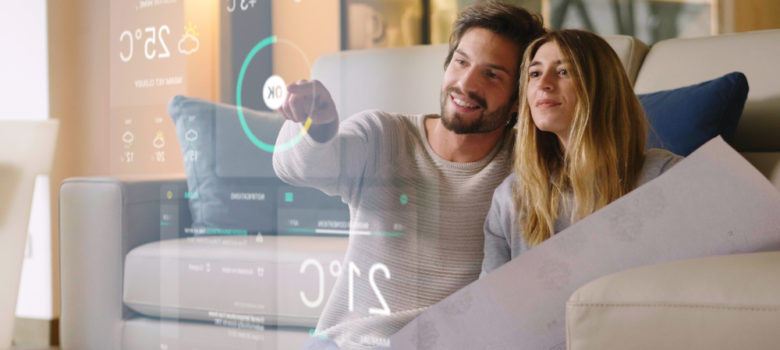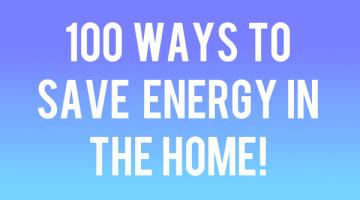
Smart meters
There is a lot of rhetoric around smart meters that relates the government rollout of smart meters to halting climate change, but how can a system that measures how much energy you use, change how much energy you use? Well, it’s not simple cause and effect. The idea is that being able to see your energy use encourages behavioural change. So if you can see how much it’s costing you to leave your lights on in rooms you’re not using, you are more likely to remember to turn them off.
There is also a bigger reason that smart meters are important for the UK energy system, which concerns saving energy on a national scale. Smart meters gather far more data about how and when our energy demand works. This information is vital to improving our current energy system to accommodate intermittent renewable energy sources without wasting what we generate. You can read a full explanation of that here. The point is that a smarter energy system will end up saving the country money as a whole, but you’re unlikely to see those savings reflected in your bills for a little while.
As a whole, smart meters can save you money if you pay attention to them and are willing to learn from them. They won’t give you savings automatically.
Smart lights
Smart lights have become very popular in a relatively short space of time. There’s quite a lot of variation between them, but in general we would call it a smart light if it can be controlled with a phone or computer or voice. The big brand name that everyone associates with smart lights are the Philips Hue, which are indeed well made and durable, but are no longer the only competitors on the market. Even ikea has their own smart bulbs now.

In either case, what the light is really doing is remembering to turn itself off so that you don’t have to. If set up and used properly, it removes human error from the equation of lighting. Therefore it’s very possible that you’ll see a reduction in energy use. Again, a bit like the smart meter, it’s all about using the technology properly.
The other thing to remember about smart lights is that they are all LED. If you’re switching from a standard LED to a smart bulb then the difference in energy use will be minimal, but if you’re switching from an old style bulb then you’re likely to be making significant savings.
Smart heating
Smart thermostats are a subject we’ve covered a few times before, but in terms of smart technologies to save you money they’re probably the best. They can adapt to learn your routines and ensure that you’re never heating an empty house. They’re not a guarantee of saving you energy because, as with all smart tech, it’s about using it sensibly. One problem that a lot of people have is placing the thermostat near the front door, which gets cold when the door is opened, even if the rest of the house is warm. Therefore the heating is triggered to go on when it’s not needed. If you’re thinking about getting a smart thermostat, ensure that it’s situated in the room you spend most of your time in, with the most consistent temperature.
Smart radiator valves are less popular, generally because they’re more expensive, but they can give you ultimate control over your heating system. By hooking using smart radiator valves (or smart TRVs as they’re sometimes known) to all of you radiators, you can control the heating in you home on a heater-by-heater, or zone-by-zone basis. This means you can have the heating off in the whole house but on in, say, the living room, and you can do it without have to manually go and switch on or off the radiators in every room by hand. If used properly, a smart valve system can save you a lot of money, but the initial cost is pricey.
Smart plugs
We love smart plugs. Essentially what they do is make it possible for you to turn anything that uses a standard mains plugs on and off without having to physically use the switch. Here are some examples of when you might find a smart plug useful and energy saving:
- Turning off televisions, computers and games consoles completely before bed
- Timing lamps to come on/off at particular times
- Turning on an electric heater shortly before you come home
- Checking that appliances are switched off when you’re not at home
- Limiting television time for children
Smart security
We’re including this because it’s definitely a growing market. Smart security is things like window and door automated locks, video cameras, and video doorbells. Obviously, all of these things use power compared to their manual counterparts. Running video cameras and doorbells doesn’t take a massive amount of energy, but it certainly takes more energy than not having them. If you do have cameras installed, consider making sure that they’re motion-activated so they’re not using more energy than they have to.
Automated locks are slightly different. Obviously they use power too, but if you have them hooked up to a wider smart home system then they can be used to trigger energy-saving behaviours. For example, if you have a smart lock that communicates with your other devices and turns off all the lights and smart-plugs in your home when you leave the house.
Think we missed something? Do you have a different opinion?
Comment below to get your voice heard…












No Comments yet! Be the first one.